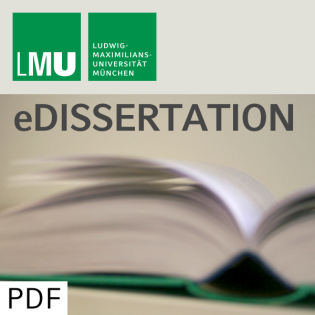
Gauge-Field Theories and Gravity on Noncommutative Spaces
Beschreibung
vor 18 Jahren
In this thesis gauge-field theories and gravity on noncommutative
spaces are studied. We start with an introduction to the concepts
underlying the construction of field theories on noncommutative
spaces. By a noncommutative space we mean a noncommutative algebra,
which replaces the algebra of functions on ordinary space. We
construct derivatives and deformed symmetries ("Quantum Group"
symmetries) acting on noncommutative spaces. Consistency requires
us to change the action on a product of representations ("deformed
coproducts"); this gives rise in particular to deformed Leibniz
rules. We also show how a noncommutative space and the generators
of deformed symmetries acting on it can be represented on the
ordinary algebra of functions; the commutative, point-wise product
is substituted by a noncommutative one ("star-product"). One
possible way to define gauge-field theories on noncommutative
spaces is to construct "Seiberg--Witten maps". In this approach it
is possible to express all noncommutative quantities in terms of
their commutative counterparts. We illustrate this by two examples,
the two-dimensional q -deformed Euclidean plane and the \kappa
-deformed Minkowski space-time. In addition gauge-field theory on
"fuzzy" S^{2}\times S^{2} is discussed as a multi-matrix model. We
show that this model reduces in an appropriate limit to gauge-field
theory on noncommutative \mathbb{R}^{4} . We also present a new
approach to deformed gauge theories, which is based on "twisted"
gauge transformations. In this setting new fields occur in addition
to the usual gauge fields. Consistent equations of motion and
conserved currents are obtained. This is the first time that
conservation laws have been derived from a generalized, Quantum
Group symmetry. We discuss in detail how to construct deformed
infinitesimal diffeomorphisms by deformations via generic "twists".
Then we construct gravity as a theory, which is covariant with
respect to these diffeomorphisms. This leads to a deformation of
Einstein's equations. For canonically deformed spaces, a deformed
Einstein--Hilbert action can be even defined. It reduces to the
usual Einstein--Hilbert action in the commutative limit. All
relevant quantities are expanded in terms of the usual, commutative
fields up to second order in the deformation parameter.
spaces are studied. We start with an introduction to the concepts
underlying the construction of field theories on noncommutative
spaces. By a noncommutative space we mean a noncommutative algebra,
which replaces the algebra of functions on ordinary space. We
construct derivatives and deformed symmetries ("Quantum Group"
symmetries) acting on noncommutative spaces. Consistency requires
us to change the action on a product of representations ("deformed
coproducts"); this gives rise in particular to deformed Leibniz
rules. We also show how a noncommutative space and the generators
of deformed symmetries acting on it can be represented on the
ordinary algebra of functions; the commutative, point-wise product
is substituted by a noncommutative one ("star-product"). One
possible way to define gauge-field theories on noncommutative
spaces is to construct "Seiberg--Witten maps". In this approach it
is possible to express all noncommutative quantities in terms of
their commutative counterparts. We illustrate this by two examples,
the two-dimensional q -deformed Euclidean plane and the \kappa
-deformed Minkowski space-time. In addition gauge-field theory on
"fuzzy" S^{2}\times S^{2} is discussed as a multi-matrix model. We
show that this model reduces in an appropriate limit to gauge-field
theory on noncommutative \mathbb{R}^{4} . We also present a new
approach to deformed gauge theories, which is based on "twisted"
gauge transformations. In this setting new fields occur in addition
to the usual gauge fields. Consistent equations of motion and
conserved currents are obtained. This is the first time that
conservation laws have been derived from a generalized, Quantum
Group symmetry. We discuss in detail how to construct deformed
infinitesimal diffeomorphisms by deformations via generic "twists".
Then we construct gravity as a theory, which is covariant with
respect to these diffeomorphisms. This leads to a deformation of
Einstein's equations. For canonically deformed spaces, a deformed
Einstein--Hilbert action can be even defined. It reduces to the
usual Einstein--Hilbert action in the commutative limit. All
relevant quantities are expanded in terms of the usual, commutative
fields up to second order in the deformation parameter.
Weitere Episoden

vor 16 Jahren
In Podcasts werben








Kommentare (0)